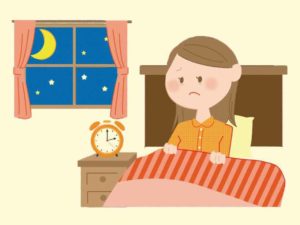Sleep Hygiene
Getting good sleep is important in maintaining health. There are several things that you can do to promote good sleep and sleep hygiene, and ultimately get better sleep.
What is sleep hygiene?
Sleep hygiene is defined as behaviours that one can do to help promote good sleep using behavioural interventions.
Sleep hygiene tips:

1: Maintain a regular sleep routine
- Go to bed at the same time
- Wake up at the same time
- Stick to the same sleep schedule +/- 20 minutes
2: Avoid naps if possible
- Naps decrease the ‘Sleep Debt’ that is so necessary for easy sleep onset.
- Each of us needs a certain amount of sleep per 24-hour period. We need that amount, and we don’t need more than that.
- When we take naps, it decreases the amount of sleep that we need the next night – which may cause sleep fragmentation and difficulty initiating sleep and may lead to insomnia and sleep deprivation.


3: Don’t stay in bed awake for more than 5-10 minutes.
- If you find your mind racing or worrying about not being able to sleep during the middle of the night, get out of bed, and sit in a chair in the dark. Allow your mind to race in the chair until you are sleepy, then return to bed. No TV or internet during these periods! That will just stimulate you more than desired.
- If this happens several times during the night, that is OK. Just maintain your regular wake time and try to avoid naps.
4: Don’t watch TV or read in bed.
- When you watch TV or read in bed, you associate the bed with wakefulness.


5: Limit your caffeine intake
- The effects of caffeine may last for several hours after ingestion. Caffeine can fragment sleep, and cause difficulty initiating sleep. If you drink caffeine, use it only before 12pm.
- Remember that soda and tea contain caffeine as well.
Avoid inappropriate substances that interfere with sleep – Cigarettes, alcohol, and over-the-counter medications may cause fragmented sleep.
7: Exercise regularly
- Exercise before 2 pm every day. Exercise promotes continuous sleep.
- Avoid rigorous exercise before bedtime. Rigorous exercise circulates endorphins into the body which may cause difficulty initiating sleep.


8: Have a quiet, comfortable bedroom
- Set your bedroom thermostat at a comfortable temperature. Generally, a little cooler is better than a little warmer.
- Turn off the TV and other extraneous noise that may disrupt sleep. Background ‘white noise’ like a fan is OK.
- If your pets awaken you, keep them outside the bedroom.
- Your bedroom should be dark. Turn off bright lights.
- Have a comfortable mattress.
- If your bed partner snores, this could be fragmenting your sleep. Consider snoring remedies to help stop snoring.
If you are a ‘clock watcher’ at night, hide the clock.
9: Have a comfortable pre-bedtime routine
- A warm bath, shower
- Meditation, or quiet time
- Some find ASMR helpful

